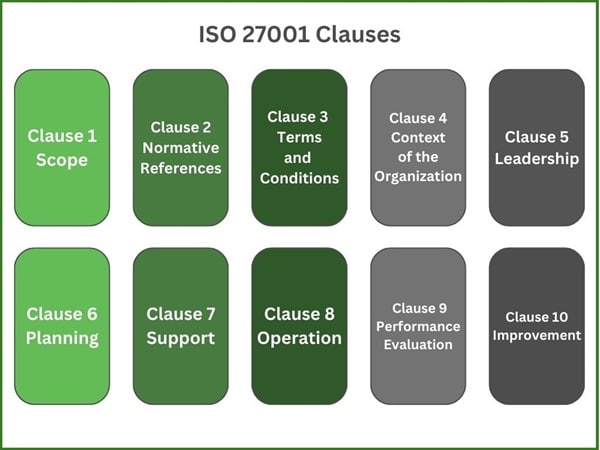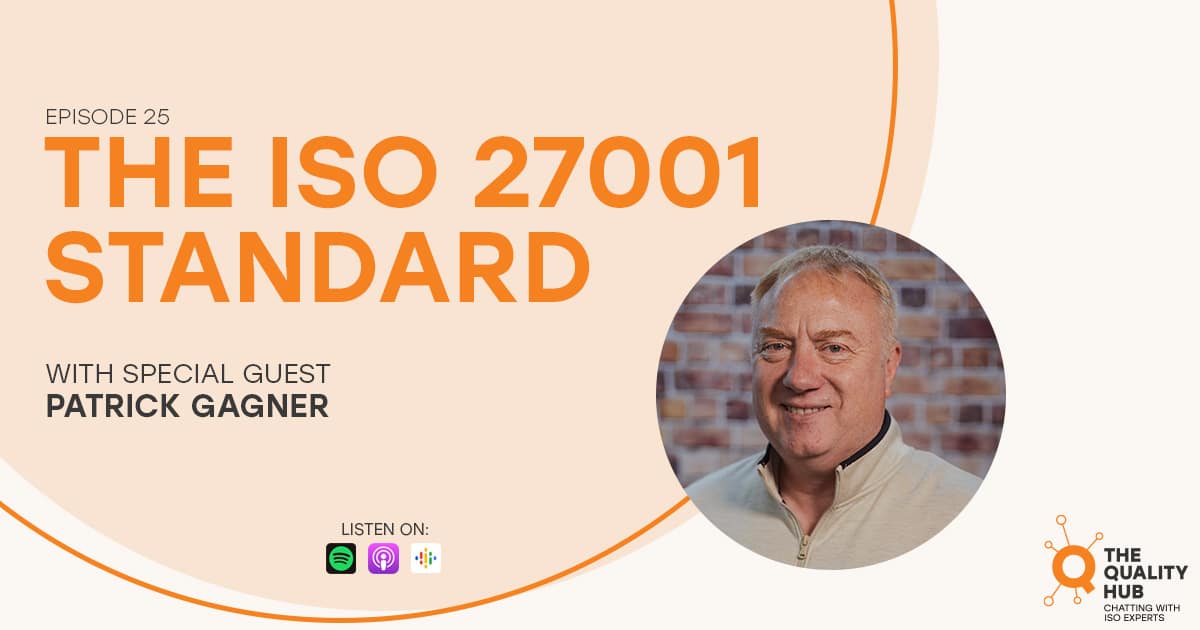ISO 27001 Clause 8 Explained
What is ISO 27001 Certification?
ISO 27001 certification is an internationally recognized standard that provides a framework for managing and protecting sensitive information in a systematic and secure way. The standard is designed to help organizations safeguard their data, ensuring its confidentiality, integrity, and availability. By implementing an Information Security Management System (ISMS) based on the ISO 27001 standard, organizations can effectively manage risks related to data breaches, cyber-attacks, and other information security threats.
At the heart of ISO 27001 is its risk management approach, which requires organizations to identify potential security risks and implement appropriate controls to mitigate them. This process involves assessing both internal vulnerabilities and external threats to the organization’s information assets. By systematically managing these risks, the ISMS ensures that sensitive data, such as customer information, intellectual property, and financial records, is well-protected from unauthorized access or loss.
Get a Free Quote
ISO 27001 Certification Involves a Formal Audit
Achieving ISO 27001 certification involves a formal audit conducted by an independent certification body. During the audit, the organization’s ISMS is evaluated to ensure it meets the rigorous requirements outlined in the ISO 27001 standard. If the ISMS passes the audit, the organization is awarded ISO 27001 certification, which signals to clients, partners, and stakeholders that the organization takes information security seriously and follows globally recognized best practices.
ISO 27001 certification also emphasizes the importance of continuous improvement. As security risks evolve and new technologies emerge, organizations are required to regularly review and update their ISMS to stay ahead of potential threats. This commitment to ongoing improvement not only enhances the organization’s ability to protect its information but also helps it maintain trust with clients and stakeholders, strengthening its reputation as a responsible and security-conscious business.
What is the ISO 27001 Clause 8 About?
ISO 27001 Clause 8 focuses on the operational aspects of the Information Security Management System (ISMS). It outlines the requirements for planning, implementing, and controlling the processes necessary to meet information security objectives, as well as managing and addressing identified risks.

Essentially, Clause 8 is about putting the security controls and measures into practice, ensuring that the ISMS operates effectively in the day-to-day activities of the organization.
Here are the key components of Clause 8:
1. Operational Planning and Control (Clause 8.1):
Clause 8.1 requires organizations to plan, implement, and control the processes needed to meet information security requirements and achieve objectives. This includes establishing specific plans and processes for handling risks and ensuring that controls are consistently applied. The organization must also document the operation of these processes to ensure they are traceable and effective.
2. Risk Assessment (Clause 8.2):
This part of Clause 8 mandates that organizations carry out regular risk assessments, as needed, to identify new or changing risks to information security. The frequency and scope of these assessments should be determined based on the organization’s risk criteria. If risks are found, organizations need to reassess and adjust their controls to ensure they remain effective in mitigating those risks.
3. Risk Treatment (Clause 8.3):
Following the risk assessment, organizations must take appropriate actions to address identified risks. Clause 8.3 requires organizations to select and implement appropriate security controls based on the outcomes of the risk assessments. These controls may come from Annex A of the standard, or they may be custom-developed to address specific threats. The effectiveness of these controls must be regularly monitored and reviewed to ensure they remain fit for purpose.
In summary, Clause 8 of ISO 27001 focuses on the operational management of information security, from planning and implementing security controls to continuously assessing and addressing risks. This clause ensures that the ISMS is not just a set of policies on paper but a fully integrated and actively managed system that adapts to evolving threats and organizational changes.
What’s the difference between ISO 9001 Clause 8 and ISO 27001 Clause 8?
The key difference between ISO 9001 Clause 8 and ISO 27001 Clause 8 lies in their focus areas: ISO 9001 Clause 8 is centered around the operational control of a Quality Management System (QMS), while ISO 27001 Clause 8 deals with the operational control of an Information Security Management System (ISMS). Although both clauses focus on managing operations effectively, they address different organizational needs—quality versus information security.
Here’s a comparison of the two clauses:
1. Scope and Focus
ISO 9001 Clause 8 (Operation of Quality Management System): ISO 9001 Clause 8 deals with the processes required for the delivery of products and services that meet customer and regulatory requirements. It focuses on the operational aspects of producing goods and services, such as planning, control of production processes, design and development, procurement, and service provision. Its goal is to ensure that the organization consistently delivers quality products and services.
ISO 27001 Clause 8 (Operation of Information Security Management System): ISO 27001 Clause 8, on the other hand, focuses on the operational control of information security. It requires organizations to plan, implement, and control security processes that protect information assets from identified risks. The emphasis here is on maintaining the confidentiality, integrity, and availability of information by implementing appropriate security controls and managing risks effectively.
2. Operational Planning and Control
ISO 9001 Clause 8.1: In ISO 9001, operational planning and control involves managing production and service delivery processes to ensure consistency in product quality. This includes determining the necessary steps for production, controlling resources, and establishing criteria for the acceptance of products and services. It also covers monitoring processes and making adjustments to ensure quality outcomes.
ISO 27001 Clause 8.1: In ISO 27001, operational planning and control involves implementing the necessary security processes to protect information assets. This includes ensuring that information security measures are planned, executed, and controlled to mitigate risks. The focus is on applying security controls, monitoring their effectiveness, and responding to security incidents as they arise.
3. Risk Management
ISO 9001 Clause 8: While ISO 9001 Clause 8 doesn’t focus explicitly on risk management in the same way ISO 27001 does, it requires organizations to plan and control production and service processes to prevent failures and ensure quality. Any risks to product or service quality (such as process inefficiencies or supplier issues) are managed through effective operational control and monitoring.
ISO 27001 Clause 8.2 and 8.3: ISO 27001 Clause 8 explicitly addresses risk assessment (Clause 8.2) and risk treatment (Clause 8.3) as part of its operations. It requires organizations to regularly assess information security risks and implement controls to mitigate those risks. The focus is on preventing data breaches, cyber threats, and unauthorized access to sensitive information through a risk-based approach.
4. Service/Product Delivery vs. Information Security Controls
ISO 9001 Clause 8: In ISO 9001, the clause deals with the full lifecycle of products and services, from the initial design and development through production or service delivery. This includes managing customer communication, design processes, supplier management, and controlling non-conforming products or services. The aim is to ensure that customer needs are met through high-quality production and service provision.
ISO 27001 Clause 8: ISO 27001 Clause 8, by contrast, is focused on implementing and controlling information security measures to ensure data protection throughout its lifecycle. This includes planning for potential security incidents, continuously monitoring and improving security measures, and ensuring that any identified security risks are treated through appropriate controls.
Summary:
ISO 9001 Clause 8 is centered on ensuring that the organization’s operational processes consistently deliver high-quality products and services that meet customer expectations and comply with relevant regulations. It covers the entire product/service lifecycle, from design and production to delivery and post-delivery support.
ISO 27001 Clause 8 focuses on the operational aspects of information security management, emphasizing the identification, assessment, and mitigation of security risks. It is concerned with implementing, monitoring, and improving information security controls to protect the organization’s data and information assets.
In essence, while both clauses deal with operational management, ISO 9001 is focused on quality control and customer satisfaction, whereas ISO 27001 is focused on risk management and protecting information security.

How Much Time Does it take to get ISO 27001 Certification?
ISO 27001 certification takes 4 to 6 months to complete. If you are implementing multiple standards at the same time, it could take longer.
How Much Does it Cost to get ISO 27001 Certification?
Depending on the size and complexity of your company, it can cost between $18,000 and $23,000 to prepare for ISO 27001 certification.
Helpful Resources: The ISO 27001 Standard Podcast
In this episode of “The Quality Hub” podcast, host Xavier Francis interviews Patrick Gagner, a Cyber Consultant at Core Business Solutions, about the ISO 27001 and Information Security Management System. Pat explains ISO 27001 as an Information Security Management System (ISMS), emphasizing its risk-based approach to safeguarding information confidentiality, integrity, and availability. Listen Now
What is Annex A?
With ISO 27001 certification, Annex A plays a critical role as it provides a comprehensive list of information security controls that organizations can use to mitigate risks identified in their Information Security Management System (ISMS).

These controls are categorized into 14 domains, covering various aspects of information security such as access control, encryption, physical security, and incident management. Annex A helps organizations identify the specific controls they need to implement based on their unique risks and business environment, ensuring that the ISMS is tailored to address relevant security challenges.
It’s important to note that Annex A is not a checklist of mandatory requirements but rather a catalog of controls that organizations can choose from as appropriate to their specific needs. During the risk assessment process, an organization identifies its security risks and then selects controls from Annex A (or alternative controls) to mitigate those risks.
Annex A essentially serves as a reference to ensure that the organization has considered a wide range of security areas, providing a structured way to safeguard the confidentiality, integrity, and availability of information.
The use of Annex A demonstrates a proactive and structured approach to information security within the organization’s ISO 27001 framework.
Customer Reviews


